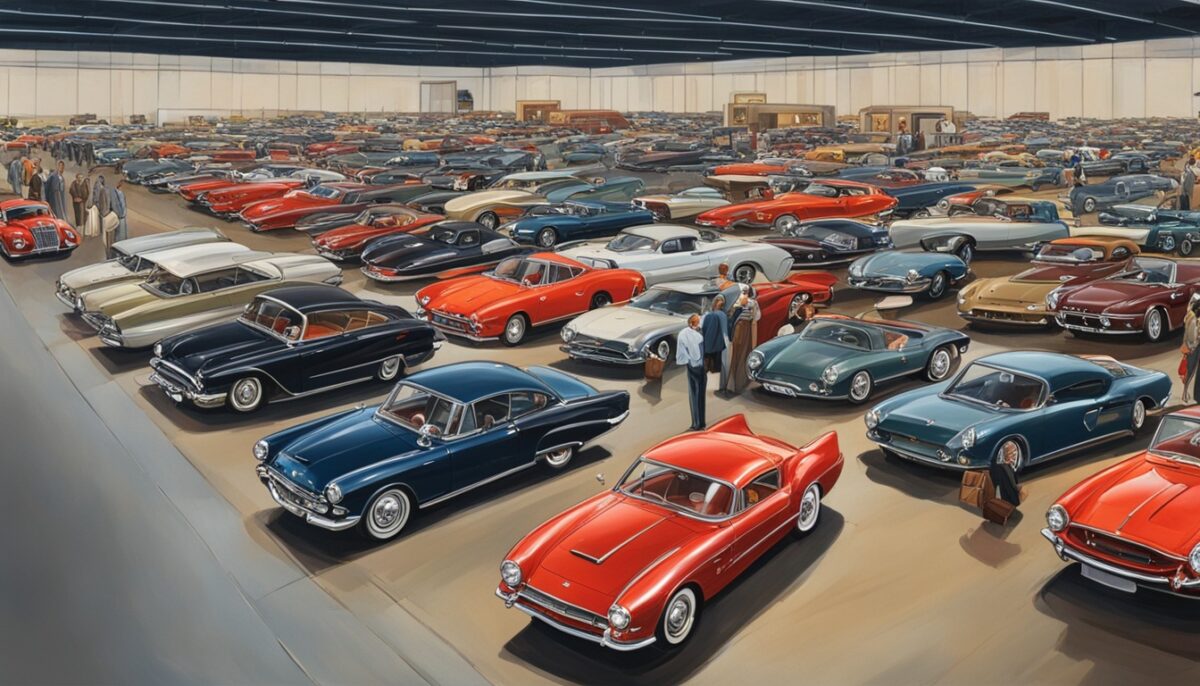As car enthusiasts and prospective buyers, we’re excited to share essential tips and strategies to help you effectively prepare for a car auction and make the most of your auction experience. Whether you’re a first-time auction attendee or a seasoned car enthusiast, this comprehensive guide will equip you with the knowledge and confidence to navigate the auction process and secure the best deals on your desired vehicle.
In this article, we’ll delve into the fascinating world of car auctions, exploring the different types of auctions, understanding the rules and regulations, and outlining a step-by-step guide to ensure you’re auction-ready. By the time you finish reading, you’ll be armed with the tools and insights needed to navigate the car auction scene with confidence and find the perfect vehicle for your needs.
Understanding the Car Auction Scene
Navigating the world of car auctions can be both exciting and overwhelming. To make the most of your auction experience, it’s crucial to familiarize yourself with the different types of car auctions and the rules and regulations that govern these events. By understanding the auction landscape, you’ll be better equipped to make informed decisions and find the perfect vehicle for your needs.
Types of Car Auctions
Car auctions come in a variety of formats, each catering to different buyers and sellers. Let’s explore the most common types:
- Dealer-only Auctions: These auctions are typically closed to the general public and are designed for licensed car dealers to purchase vehicles for their inventory.
- Open Public Auctions: As the name suggests, these auctions are open to the public, allowing both individual buyers and dealers to participate.
- Specialty Auctions: These auctions focus on specific makes, models, or categories of vehicles, such as classic cars, exotic vehicles, or government-seized cars.
Auction Rules and Regulations
Each car auction has its own set of rules and regulations that buyers and sellers must follow. Understanding these guidelines is crucial for a successful auction experience. Some common rules and regulations include:
- Registration and Buyer’s Fees: Auctions often require buyers to register and pay a fee to participate in the bidding process.
- Inspection and Disclosure: Auctioneers are typically required to disclose any known issues or defects with the vehicles being sold.
- Bidding and Payment: Auction rules dictate the bidding process, the method of payment, and the timeframe for completing the transaction.
- Buyer’s Responsibilities: Buyers are responsible for thoroughly inspecting the vehicle, understanding the warranty (or lack thereof), and obtaining any necessary financing or insurance.
| Auction Type | Key Features | Ideal Buyers |
|---|---|---|
| Dealer-only Auctions | Closed to the public, vehicles sold in wholesale condition | Car dealers looking to restock their inventory |
| Open Public Auctions | Open to both dealers and the general public, vehicles in varying conditions | Individuals and dealers seeking bargains on used vehicles |
| Specialty Auctions | Focus on specific makes, models, or categories of vehicles | Collectors, enthusiasts, and buyers seeking unique or rare vehicles |
By understanding the different types of car auctions and familiarizing yourself with the associated rules and regulations, you’ll be well on your way to navigating the car auction scene and finding the perfect vehicle for your needs.

Auction Preparation
Preparing for a car auction is essential to ensure a seamless and successful buying experience. First, we recommend setting a realistic budget that factors in the car’s purchase price, any necessary repairs or modifications, and additional fees. Thorough pre-auction research is key – study the available inventory, read online reviews, and compare prices to get a sense of the market value for the models you’re interested in.
On-site at the auction, we suggest carefully inspecting the vehicles you plan to bid on. Check for any visible damage, test the features and functionality, and don’t be afraid to ask the auctioneer or staff questions. Developing effective bidding strategies, such as setting your maximum bid and sticking to it, can also give you an advantage in the competitive auction environment.
By following these comprehensive steps, you’ll be well-equipped to navigate the car auction process and find the perfect vehicle at the right price. Remember, a little preparation goes a long way in securing a great deal on your dream car.

